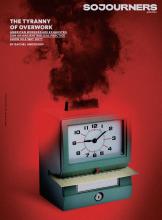AS WE APPROACH the new year, the more fortunate among us will be taking time to organize their lives by rebalancing their financial portfolios and considering new investments. While taking care of your cash, it’s important to remember that a wise teacher once said, “Store up for yourselves treasures in heaven, where moths and vermin do not destroy.” I still don’t know what vermin is (it’s probably bad because it’s in the same sentence as moths), but I think the teacher might have been telling us that in additionto tending to our finances, we should also tend to our spiritual portfolios.
If you’re wondering about how exactly to do this, here are three rules to spiritual wealth that I think will prove helpful.
Read the Full Article

